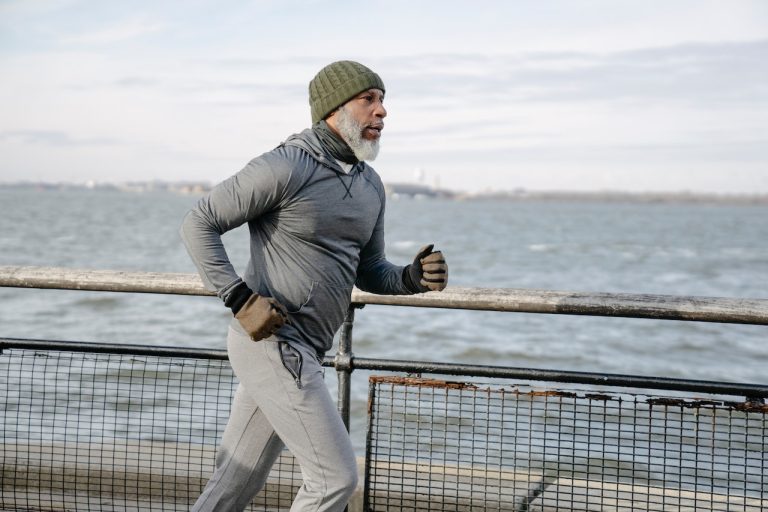How can patients actively facilitate healthy aging, according to doctors? The American Medical Association (AMA), as part of its What Doctors Wish Patients Knew series, recently released a list of recommendations.
The article features Dr. Edward T. Bope, Dr. Jenny L. Boyer, and Dr. Louis Weinstein, three AMA physicians. Dr. Bope is a family medicine physician in Ohio who serves on the AMA’s Senior Physicians Section Governing Council.
Dr. Boyer is a full-time telemedicine psychiatrist in Oklahoma who works for the Department of Veterans Affairs at the West Texas VA health care system. Dr. Weinstein is an ob-gyn and maternal-fetal medicine specialist based in South Carolina.
1. Optimize quality of life. Living longer comes with some disadvantages, as people tend to become weaker, sicker, and more frail with age. Dr. Bope says we should avoid illness when possible, but deal with it when necessary. “It really matters on the final outcome, the way you take care of the body, the way you preserve your ability,” he says.
Similarly, Dr. Boyer states, “Healthy aging is about prolonging the length of time you are aging without disability, the length of time you are able to do all the things you want to do and reducing the length of time you are aging with physical or mental challenges.”
Success
You are now signed up for our newsletter
Success
Check your email to complete sign up
2. Prioritize health throughout life. Humans are all built slightly differently, with different abilities. Dr. Bope says some people will experience musculoskeletal system issues as they age, and others will have problems with memory, vision, and hearing earlier than others.
Dr. Bope says, “It’s optimal, of course, when all of those things continue at their previous level and all you have to do is just maintain them. It’s more difficult when some of them start to change and you have to adapt to that.”
One way to prioritize health is by minimizing unhealthy habits, including smoking, alcohol use, salt consumption, and eating processed foods. Dr. Boyer says that healthy dieting and exercise are beneficial for all ages, but to let your doctor know about weight loss because there may be an underlying condition that can be treated.
Dr. Bope adds, “In aging—as in all ages—it’s good to have a balance in your nutrition. You really should still be having a good breakfast, which is something many older people skip, but that’s a good foundation for the day. And then tapering your calories off a little bit as the day goes on.”
3. Keep moving. One indicator of developing weakness is the inability to get out of a chair without using arms for support. If this is the case, doctors can refer patients to physical therapy or exercise programs to strengthen core muscles and prevent loss of mobility.
“I can’t tell you how many senior patients—and even women in their fifties—are having mobility problems,” says Dr. Weinstein. “People talk about how you need to run, jump, weight lift or swim, but I don’t care what type of mobility it is,” he says. Mobility can even include getting up from a chair or pushing against a wall.
Falls become a major concern with age, but can be mitigated by focusing on balance, muscle strength, and bone health. Dr. Bope says, “Physical health is important because it does help with your balance and it helps with building bones and keeping and maintaining some muscle strength.”
4. Stay positive. Aging is an inevitable facet of human life, but “you can choose what your attitude is and how you approach situations knowing that things are going to happen to all of us,” Dr. Weinstein says. Everyone will encounter tribulations, and how people deal with these challenges is important.
He explains how American journalist “Norman Cousins wrote a great article in the The New England Journal of Medicine years ago about his chronic disease and how his attitude markedly influenced his chronic disease.”
5. Look out for vision changes. For most adults, vision is a crucial aspect of healthy aging, functional independence, and emotional stability. “We know that vision deteriorates as we age—whether it’s cataracts, age-related macular degeneration or diabetic retinopathy—but so much of vision can either be corrected, maintained or stabilized,” says Dr. Weinstein.
While hearing is often easily corrected with hearing aids, vision loss can develop insiduously. He states, “In my personal experience, when I developed cataracts, I was having great trouble in examining patients and when I had my cataract surgery it revolutionized my ability to practice and to drive.”
6. Know your family history. Genetics also plays a role in healthy aging. Just as people with older families tend to live longer, people with heart disease and certain cancers in their families are at greater risk of these conditions.
Dr. Bope explains how being aware of family history is advantageous. “If you’re in a family with history of colon cancer, for instance, you’re hyper aware of that and you don’t dare ignore any symptoms.”
“Hearing loss is somewhat inherited, and some types of blindness are also inherited. So, all of those things, if they’re in your family you can look for ways to mitigate them, avoid them altogether or deal with them,” he says.
7. Take breaks. Just as chronic stress is unhealthy in adults, not relaxing after work or activities is also harmful in old age. Dr. Boyer recommends trying recreational activities such as “reading, going for walks, cooking, knitting, gardening, joining group activities.”
“But it’s hard to develop recreational skills in your eighties and nineties, so that’s why a lot of people do what they did as children. In my example, I was raised outside on a farm, so I walked the creeks and now I am walking in my neighborhood,” she says.
8. Be aware of loneliness. There is evidence that social isolation and loneliness are associated with an increased risk of premature death, heart disease, stroke, and dementia. The COVID-19 pandemic has exacerbated feelings of loneliness in young and old people alike.
Dr. Bope states, “In these stages of your life, you also have different social groups around you and different amounts of people. And as you get to the extremes of aging, you may have less people around you and less stimulation, so some people become discouraged or depressed just by being isolated and loneliness is a significant factor in overall happiness and in health as well.”
9. Start planning early. Accidents and health emergencies are impossible to predict, and trying to get affairs in order at the last minute can be extremely stressful. Additionally, financial stability may be impossible to ensure if people do not try to obtain some financial literacy while they are younger.
Dr. Boyer says to “think about who you might designate to manage your financial affairs if you were one day not able to do so for yourself and make sure you talk to that person about what you would want them to do. The same thing goes for health care decisions.”
10. Make small changes. Lifestyle changes can be daunting in old age after adhering to the same routines for years. Dr. Weinstein describes an example of cutting down from 10 cigarettes a day to eight cigarettes a day the next week. Stopping cold turkey is challenging for the vast majority of smokers.
Instead, he recommends giving yourself positive feedback, such as celebrating a 20 percent reduction in smoking in one week. “You can also volunteer somewhere or if you’re into sports, do that to improve your quality of life too. If you can find something you enjoy, it’s going to make all the difference,” he says.















